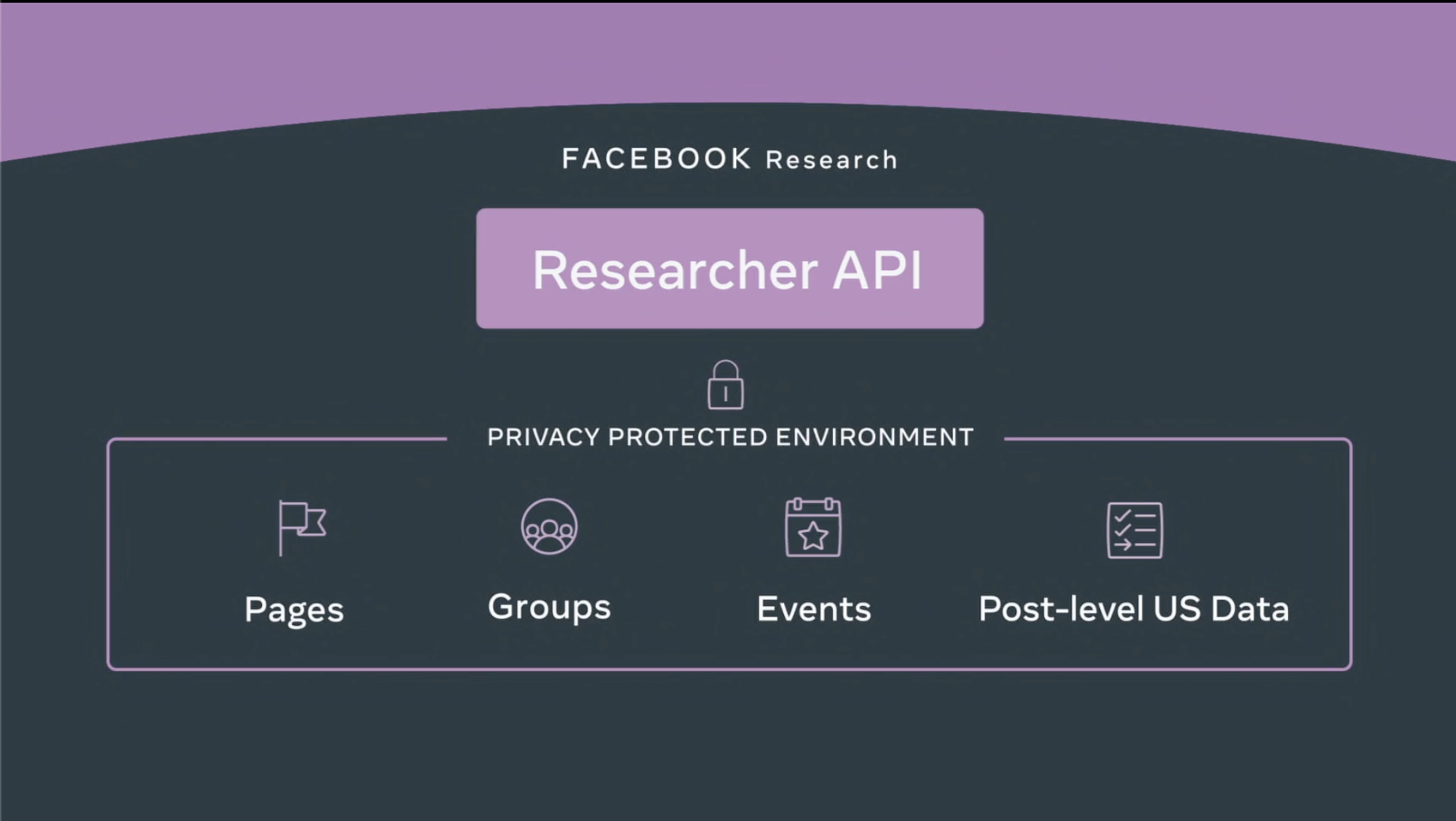Facebook makes it easier for researchers to study their platforms, including other “non-mainstream” edge groups, with new fire researchers. API, which will be available later this year, will facilitate academics to learn content distributed in groups and public pages.
It comes more than three years after Facebook closes many platforms after the Cambridge analytic scandal, which makes it more difficult for outsiders to learn social networks, the company’s trends say now want to reverse.
New API will allow “qualified researchers” to study pages, groups, and events faced by the public in the United States, including specific post text from users (Facebook says it will hide the username and @ to protect the user’s privacy.) Researchers will also Get access to follower metrics and engagement statistics for groups, events, and pages.
“It was specifically designed for researchers,” said Chaya Nayak, Head of Research and Open Facebook Transparency. “Compared to other research data offers such as Crowdtangle, API researchers will include US public pages, events, and group data on Facebook, regardless of the number of followers. This is important because it will allow the study of the movement of periphery and non-mainstream when they evolve, rather than Only once they become prominent on the platform. “
Facebook handling from the Fringe Group is a significant problem over the past year. The company has been widely criticized for failing to prevent Qanon, once considered a peripheral movement, until after being transferred to the mainstream. And after the election, Facebook failed to recognize the danger caused by the “Stop theft” movement, which helped trigger violence on January 6.
Allowing researchers who specialize in the wrong information or extremism to study smaller groups can help Facebook is better prepared for the next dangerous suburb group that tries to set on the platform. Although fire researchers will only discuss the US to start, nayak said the company plans to eventually expand it to “other geography.” He also said that in the future, Facebook will use research insights to consider “changes in our products.”
Facebook relations with researchers who want to study the platform are sometimes maintained in recent years. Some academics say the company makes it too difficult to access the limited data it provides. And many social networks were criticized for trying to prevent researchers at New York University from studying the company’s political advertising targeting system last year.
In particular, it seems that new researchers do not provide additional access to advertisements or target information. Instead, this is mainly intended for public posts. However, if the company does fire widely available for researchers, it can still be very useful for those who study information errors, extremism or other problems that affect Facebook.





